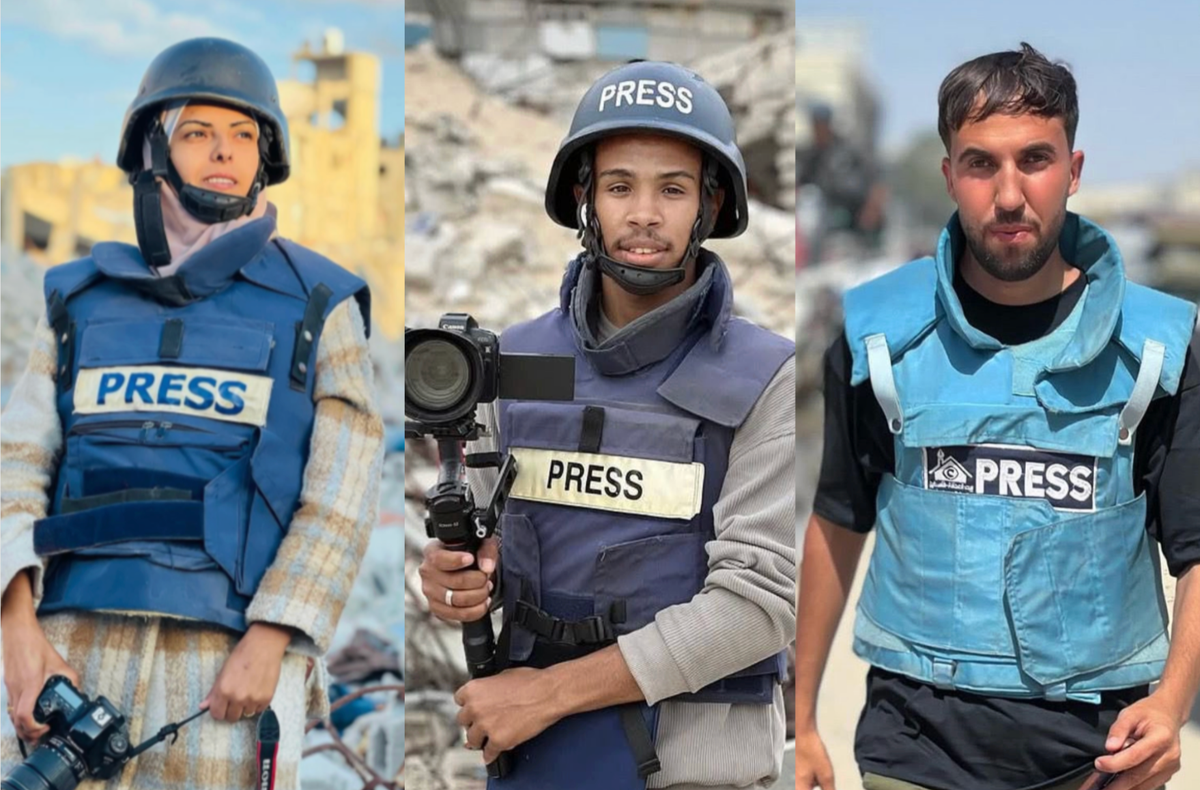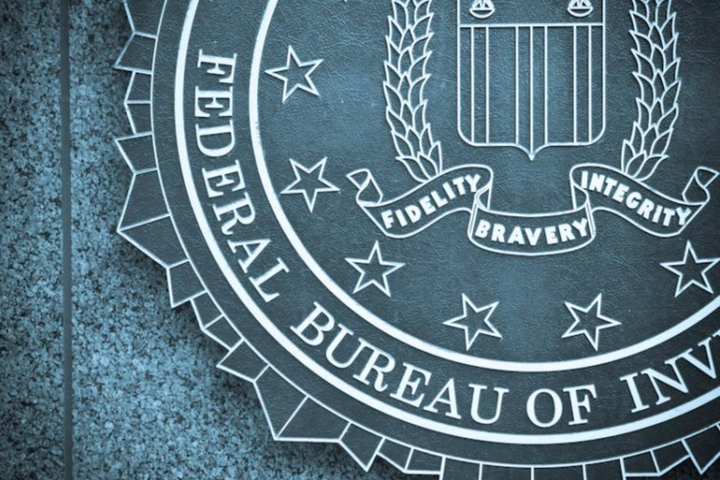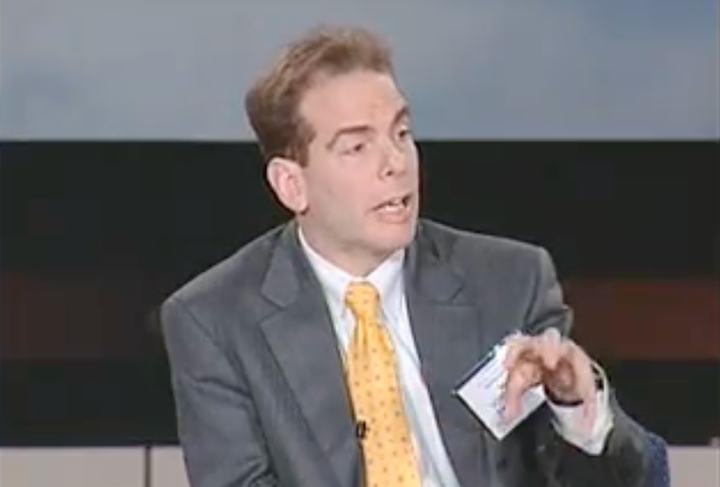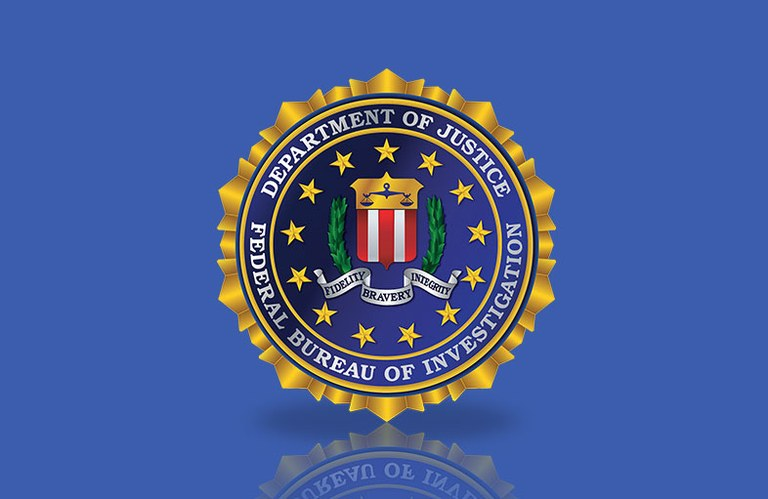Israeli Double-Tap Strike On Hospital Kills At Least Five Journalists In Gaza

The following article was made possible by paid subscribers of The Dissenter. Become a subscriber and support journalism on press freedom, whistleblowing, and government secrecy.
The Israeli military killed at least five more journalists in a double-tap strike on Nasser Hospital in Khan Younis in Gaza.
Hind Khoudary, a Palestinian journalist who works for Al Jazeera English, reacted, “I have no idea how many times are we going to continue reporting on the killing of our colleagues, on the killing of other journalists working with Al Jazeera and other news outlets.”
According to Khoudary’s report, “Israeli forces launched an explosive suicidal drone, where it hit the rooftop of Nasser Hospital.” At least one journalist and another civilian were killed. “Civil defense teams went up to try to retrieve the body, tried to rescue whoever was wounded. And also journalists went to document what’s happened and then the Israeli forces targeted another airstrike on the same exact location.”
The double-tap strike, which is a war crime, killed Mohamed Salama, an Al Jazeera journalist; Hossam al-Masri, a Reuters photojournalist; Mariam Abu Daqqa, a freelance journalist who was contracted by the Associated Press; Moaz Abu Taha a journalist contracted by NBC; Abu Aziz, a freelance journalist who contributed reporting to Middle East Eye.
“Al Jazeera Media Network condemns, in the strongest possible terms, this horrific crime committed by the Israeli occupation forces, who have directly targeted and assassinated journalists as part of a systematic campaign to silence the truth,” the Al Jazeera Media Network declared in a statement.
The network continued, “The ongoing campaign by the Israeli occupation against journalists has violated all international norms and laws, amounting to war crimes under the Rome Statute and the Geneva Conventions, both of which strictly prohibit the deliberate targeting of civilians and journalists in conflict zones.”
In Gaza, the death toll for journalists now easily exceeds 250 journalists. This particular attack occurred a little less than two weeks after the Israeli military assassinated Al Jazeera journalist Anas al-Sharif.
Salama had recently married Hala Asfour, a fellow journalist, and he told Middle East Eye that he was afraid that the Israeli military would target him after al-Sharif was killed in a strike on a media tent outside of Al-Shifa Hospital.
“He filed regular reports for MEE and covered Israel's siege on Al-Shifa Hospital, the furore over the now-pulled BBC documentary Gaza: How to Survive a War Zone, and the killing of a frail 10-year-old boy, Abdulrahim 'Amir' al-Jarabe'a, at a [Gaza Humanitarian Foundation] site in May,” the Middle East Eye recalled.
Youmna ElSayed, a journalist for Al Jazeera English, described Daqqa as a “brave journalist and beautiful friend,” and, “A mother, a kind lady with a beautiful soul and smile.” Her 12 year-old son was evacuated from Gaza earlier in the war.
“The Israeli occupation targets journalists because they convey the truth and the images for the outside world,” Abu Daqqa previously declared. “The Israeli occupation doesn’t want anyone to report. It doesn’t want the outside world to know what’s happening to us, from targeting and killing children to genocide. So it targets journalist to ensure it only spreads videos from its side.”
Daqqa shared, “As a journalist from Gaza, my message to the world is: stand with us! We want to live in peace. Stop the war on Gaza. Hand in hand, all countries have the power to stand against Israel to stop the war on Gaza.”
Al-Masri was running a live feed for Reuters when the Israeli military bombed and killed him.
Former Reuters correspondent Barry Malone pointed out that this exactly what happened to another Reuters journalist Issam Abdallah, who was assassinated in Lebanon on October 13, 2023. “Don’t like a feed running? Screw it - just kill the journalist,” Malone suggested.
Both Reuters and the AP offered rather worthless statements on Israel killing their journalists. AP said it was “shocked and saddened,” and when it first announced on X that Daqqa was killed, they didn’t even include her name.
“We are devastated to learn of the death of Reuters contractor Hussar al-Masri and injuries to another of our contractors, Hatem Khaled, in Israeli strikes on the Nasser hospital in Gaza today. We are urgently seeking more information and have asked authorities in Gaza and Israel to help us get urgent medical assistance for Hatem,” Reuters stated.
Yet it is unclear what additional information would be necessary to condemn Israel for targeting and killing a journalist, who was operating the media organization’s live feed.
At this point, every news media organization in the world that contracts with a Palestinian journalist in Gaza should openly recognize that the Israeli government will target and kill them. When they do, they have a duty and obligation to speak out against the systematic destruction of the press in Gaza or they are effectively complicit in this horror.
Mohamad Elmasry, who is a media studies professor at the Doha Institute for Graduate Studies, asked, “[W]here are the international journalists? Where is The New York Times? Where is CNN? Where are the major mainstream Western news outlets?”
“Because when Charlie Hebdo journalists were killed in 2015, that caused global outrage for months. It was a major story in every single Western news outlet. And I applauded journalists for coming to the aid of their colleagues. But now, where is the outrage?”
For a brief moment in July, it seemed like newswire services like Agence France-Presse, the Associated Press and Reuters, along with BBC News, would come together and work to end the silence around journalist deaths in Gaza because their colleagues were dying of starvation. But then the Israeli military assassinated al-Sharif, and as documented by Fairness and Accuracy in Reporting (FAIR), Western media organizations manufactured consent for that murder.
“This is our message to international organizations: they must support journalists and provide protection for them,” Mariam Abu Daqqa said. “We have been in genocide for a year and five months, and we need to change our equipment. We only have a few simple things. We need their support for journalists [in] every possible way.”
Daqqa concluded, “The Palestinian journalist is completely different from journalists in the outside world. Because as journalists in the Gaza Strip, we don’t live a normal life. We have no safety, no privacy, and nothing. Should they support journalists outside Gaza? No. We are more deserving of support because we truly need it.”
Indeed, Israel, with the full support of the United States government and many European governments, has transformed Gaza into a news graveyard. International media organizations are not only best positioned to stand up for the remaining journalists in Gaza, but they also have a responsibility to act.




Comments ()